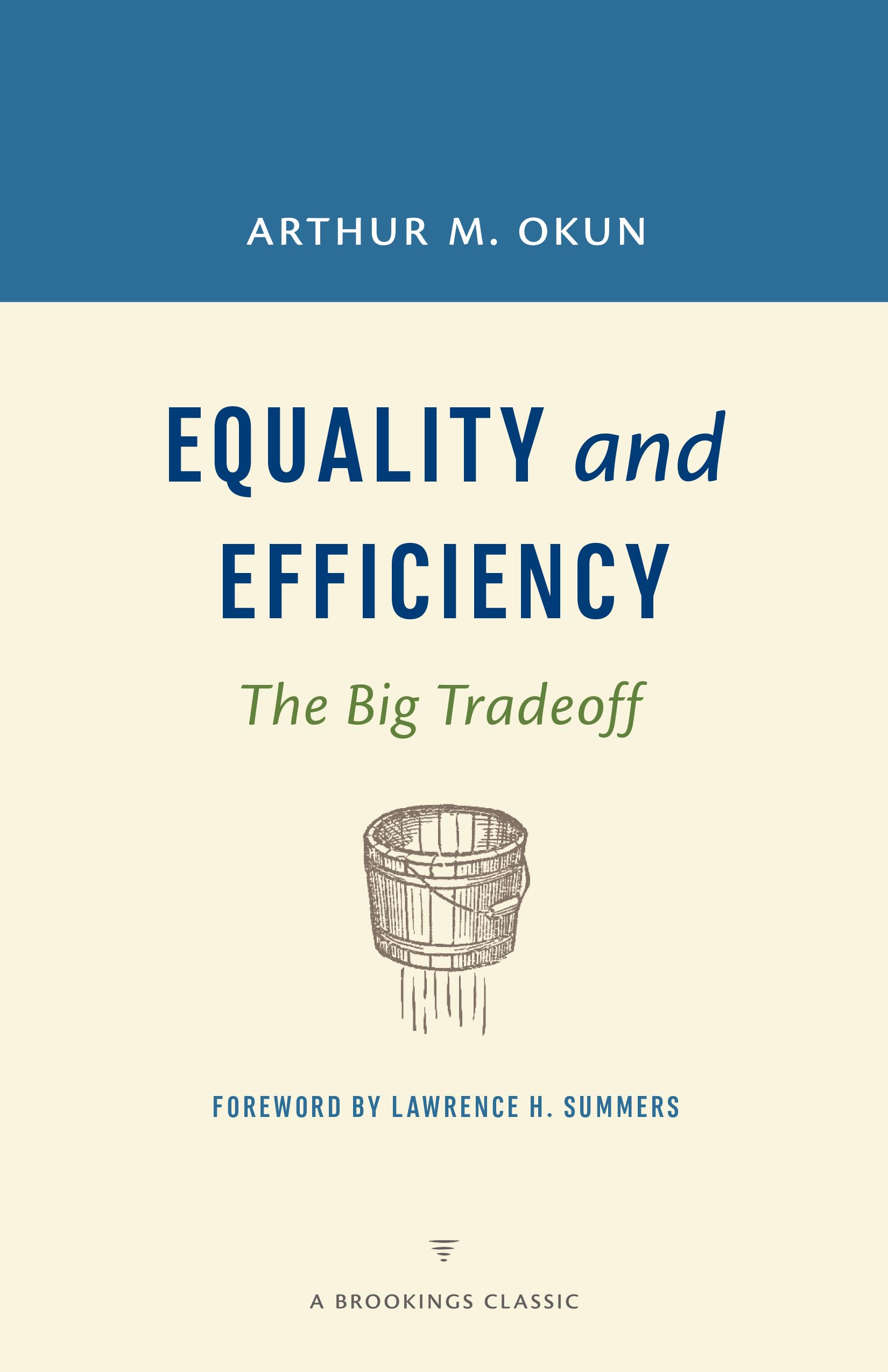

Full description not available
R**S
Excellent 20th Century Political Economy Summary
In "Equality and Efficiency: The Big Tradeoff" Arthur Okun explains why both the state and the market is needed for an equitable and efficient society.The First three chapters follow in the vein of John Locke's "Second Treatise on Government" and Milton Friedman's "Capitalism and Freedom". The fourth chapter explains the famous "leaky bucket" analogy that so many professors like. Given the current situation of our country the elimination of poverty is within our grasp.Okun has two central themes:1. The Market needs a place2. The market needs to be kept in it's place."Equality and Efficiency" is a short and worthwhile read for anyone interested in economics or politics.
M**M
Was a decent book
I bought this for a sociology class and was presently surprised. This book is worth reading on your spare time.
T**N
Still relevant
Balanced, insightful, more relevant than ever more than 40 years later. Okun argues persuasively that we need to use the dynamics of a market economy to generate growth, but to embed markets in a reasonable framework of laws and regulations to ensure provision of basic public goods, check abuses, curb inequality, and preserve competition. As the French say, we should want to have a market economy, but not a market society.
J**I
One of my favorite academic reads!
I love this short book and re-read it every 5 years or so. I would recommend any one interested in the social sciences to have a copy of this book in their library. I always wondered why Arthur Okun did not author more books, and then I realized that, sadly, he passed away at a relatively early age. Okun was a master of analogies. His magnum opus in this arena was: "The money must be carried from the rich to the poor in a leaky bucket. Some of it will simply disappear in transit, so the poor will not receive all the money that is taken from the rich". Well said, Dr. Okun!
B**O
This was my feeling at the end of the book- Capitalism is by far the most superior economic system we have
A book with a lot of assumptions. Okun assumes that income inequality must be extinguished. For most of the book he makes a lot of character assumptions but at the end he actually really ties things together. This was my feeling at the end of the book- Capitalism is by far the most superior economic system we have. Never the less, there will be inefficiencies. We have an opportunity to save capitalism in the popular view by taking from the ultra rich (who really CAN deal with the loss of a portion of their wealth) and distribute it to the poor. This would show the world that we can create incredible amounts of wealth and use the excess to lift up the financially down trodden.
P**X
Personally influential to the present day
Although I read this book almost fifteen years ago (as part of an economics course), it still influences my thinking to this day. The reader walks away with the ability to break down almost any political problem into component issues that will be used by opposite sides in a debate. Although the material is very dated now, the skills imparted are useful for thinking through any modern political issue.
D**N
Quick, decent, but flawed
Okun certainly makes some valid points throughout, and it’s difficult for a reader with the benefit of 40 years of subsequent history to judge too harshly.However, even accepting this as more of an informal work than an academic work, there are some serious shortcomings in the arguments.One example off the top of my head: Okun relays that the poverty line is an imperfect measure and then highlights that retirees skew the “poverty” group because their means of living weigh more towards wealth than income. In the following section, he uses the fact that “a larger proportion of the aged...have incomes below the poverty line” to argue for transfers!Granting that this was written before behavioral economics took off, the book omits almost entirely any influence of human nature affecting the policies he proposes. History has not been kind to some of his proposals in that regard.It’s a quick read with a few thought-provoking items. But its age, subjectivity, and average writing make this a take-it-or-leave-it for me.
W**L
Insightful analysis into government and markets
It really is a shame that one apathetic student is dragging the rating of this important book down.The ideas expressed by Okun here have withstood the test of time and are especially relevant in light of current government policies.Highly recommended for those who want to deepen their thoughts and broaden their perspectives about the role of markets, government, and how the two relate to one another.
A**O
How relevant the approach Arthur Burns is to a very old problem
Studying the issues of equity and efficiency in regional policy, the work of Arthur Burns has been a very relevant inspiration, helping me to go in-depth in my analysis.
A**I
Top
The best book ever on equity. Much clear and easy readable
J**A
Un libro importante
Un libro importante porque abrió un debate sobre cuánto estamos dispuesto a pagar en eficiencia para conseguir más equidad. Arthur Okun plantea que las políticas redistributivas trasvasan agua (rentas) desde los ricos hacia los pobres, pero en un cubo que tiene agujeros en el fondo, con lo que buena parte de la misma se pierde por el camino. No todos los economistas comparten este mismo criterio, pues hay quienes creen que las políticas redistributivas evitan la marginalidad de una parte de la población y son inversiones de cara al futuro.
Trustpilot
3 weeks ago
5 days ago